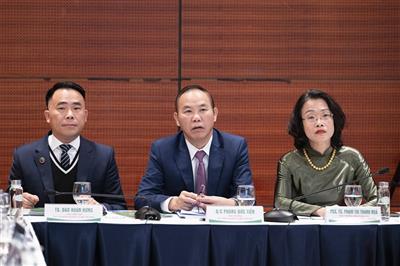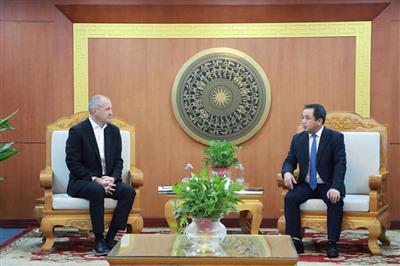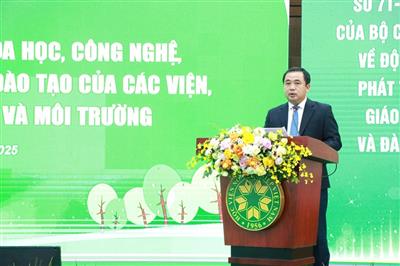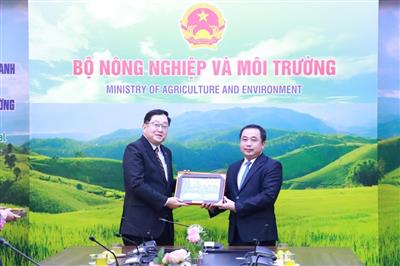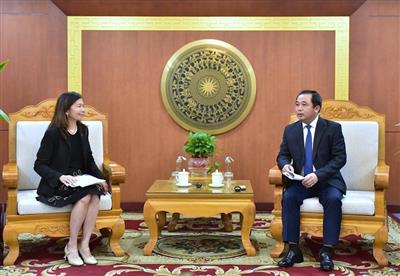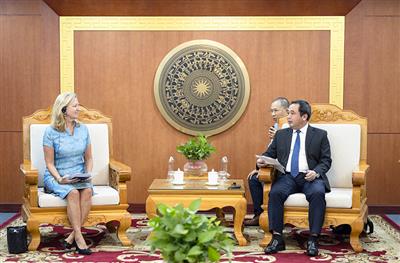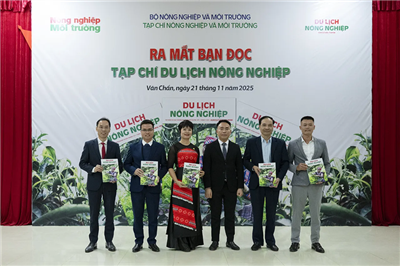
Australian startup's breakthrough: Converting CO2 into cement materials
15/04/2024TN&MTMCi held a foundation ceremony on April 10th at the site in the city of Newcastle (New South Wales, Australia). The new facility, designed to capture 1,000 to 3,000 tonnes of carbon dioxide per year, is slated for completion by the end of 2024.

MCi Carbon CEO Marcus Dawe, far right, and Japanese ambassador to Australia Kazuhiro Suzuki, far left, attend a foundation ceremony for a new carbon capture plant in Newcastle on April 10
MCi Carbon, in collaboration with Orica, is on the verge of a revolutionary breakthrough in carbon capture and utilization (CCU) technology. The company is spearheading the construction of an innovative facility in Newcastle, Australia, set to transform the landscape of decarbonization.
Expected to be completed by early 2025, the state-of-the-art plant will convert over 1,000 tonnes of CO2 emissions annually into nearly 10,000 tonnes of low-carbon materials. The project's significance was underscored by the presence of Australia's Minister for Climate Change and Energy, the Hon. Chris Bowen MP, at the recent Myrtle Foundation Ceremony, marking the commencement of construction.
Situated adjacent to Orica's Kooragang Island manufacturing plant, the facility represents a crucial milestone in MCi's journey towards large-scale industrial deployment. Minister Bowen's symbolic placement of a low-carbon cement brick in the site's 'Pathway to Net Zero' highlights the tangible impact of MCi's technology, which securely locks away CO2 into materials, thus catalyzing the decarbonization of the built environment and manufacturing sector.
Speaking at the ceremony, Minister Bowen emphasized the pivotal role of regions like the Hunter in driving Australia's clean energy future. He lauded MCi Carbon's innovative technology, noting its dual impact of emissions reduction and job creation, crucial elements in achieving the nation's ambitious emissions reduction targets.
Joining Minister Bowen were key stakeholders, including Federal Member for Newcastle Ms. Sharon Claydon MP, Orica CEO & Managing Director Sanjeev Gandhi, and Japanese Ambassador to Australia Mr. Suzuki Kazuhiro. Their presence underscores the global significance of MCi's endeavors, with cross-sector collaboration emerging as a linchpin in the transition towards a circular and net-zero economy.
MCi Carbon's CEO, Marcus Dawe, expressed optimism regarding the transformative potential of the company's technology on a global scale. By converting CO2 emissions into solid carbon embodied materials, MCi Carbon aims to play a pivotal role in mitigating climate change while meeting the demands of the circular carbon economy.
The Newcastle facility represents just one facet of MCi Carbon's ambitious plans. With significant investments from both governmental and private entities, including Japan's Sumitomo Mitsui Trust Bank, MCi is poised to scale its operations globally. Plans for a large-scale plant in Europe, in collaboration with RHI Magnesita, signify the company's commitment to advancing CCU technology on a worldwide scale.
MCi Carbon's journey towards commercialization received a significant boost with a $14.6 million grant from the Australian Government CCUS Development Fund in 2021. The Newcastle facility, set to be operational by early 2025, will serve as a beacon of innovation, demonstrating the transformative potential of MCi's technology in the fight against climate change.
The commercialization journey, however, is not without its challenges. MCi CEO Marcus Dawe emphasizes the importance of partnerships in driving technological innovation and adoption. With the support of its partners and stakeholders, MCi Carbon aims to commercialize its technology by 2026, paving the way for a cleaner, more sustainable future.
Ngoc Huyen (Nikkei Asia, Carbon Capture Jounal)


